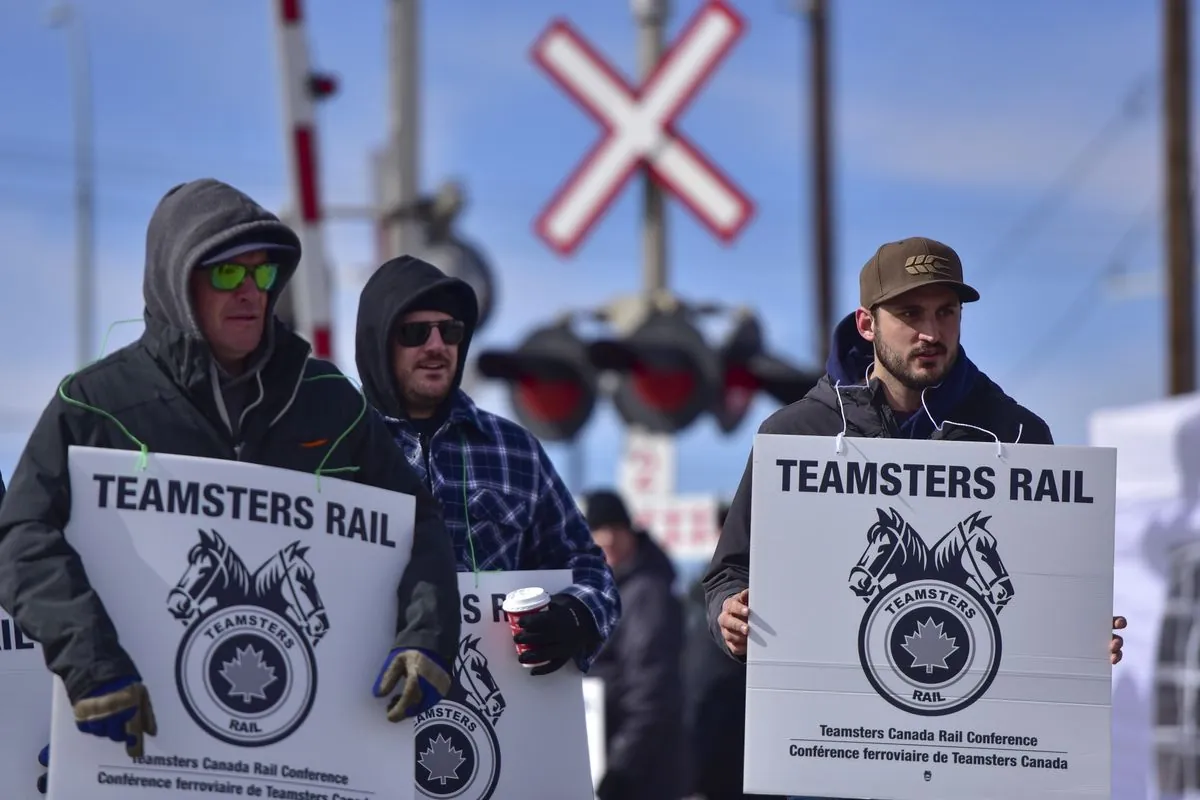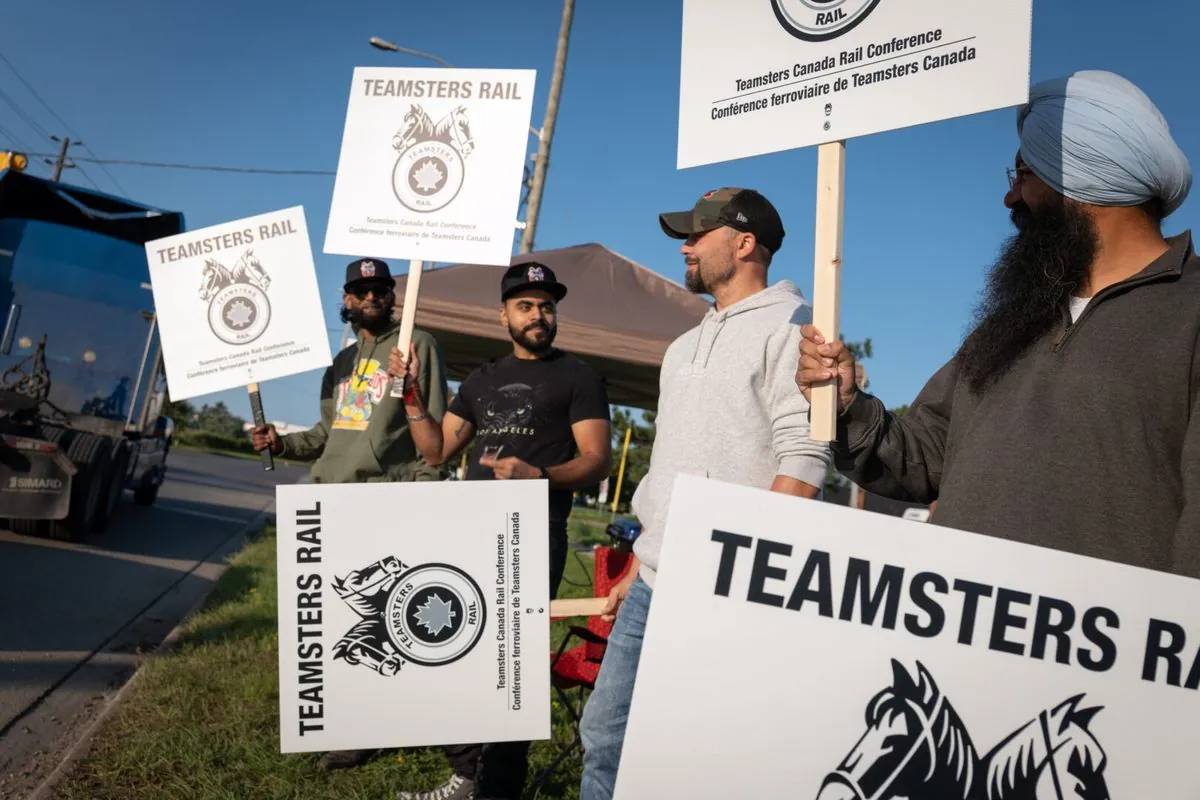Canadian Rail Union Challenges Government Intervention in Labor Dispute
Union representing workers at major Canadian railways contests government's decision to refer labor dispute to national board. Some workers return to duty amid ongoing lockout at one company.

In a recent development in Canada's railway sector, the union representing workers at two major rail companies has announced its intention to challenge the constitutionality of a government decision. This move comes as the labor dispute continues to unfold, with some workers returning to their posts while others remain locked out.
Canadian National Railway (CN), the country's largest railway company founded in 1919 and privatized in 1995, has seen its workers begin to return to their duties as of today, August 23, 2024. However, the situation remains tense at Canadian Pacific Kansas City (CPKC), where a lockout persists. CPKC, formed in 2023 through a merger between Canadian Pacific Railway and Kansas City Southern, continues to face labor challenges.
The Canadian government intervened yesterday to address what has been described as an unprecedented rail stoppage. This intervention involved referring the labor dispute to a national board, a decision that has now prompted the union to announce its constitutional challenge.

Canada's railway system, the fifth largest globally with over 49,000 kilometers of tracks, plays a crucial role in the nation's economy. CN and CPKC together account for more than 95% of Canada's rail capacity, underscoring the significance of this labor dispute.
"We believe the government's decision to intervene in this manner infringes upon the rights of workers. While we respect the need for essential services, we must also protect the collective bargaining process."
The current situation highlights the delicate balance between labor rights and economic interests in Canada's vital transportation sector. Railways have been integral to Canada's development since the completion of the first transcontinental railway in 1885, playing a key role in confederation and westward expansion.
This dispute occurs against the backdrop of Canada's complex labor relations landscape in federally regulated industries, governed by the Canada Labour Code. The Canadian Transportation Agency, responsible for regulating railway operations, will likely be closely monitoring the situation.
As this challenge unfolds, it's worth noting that both CN and CPKC are classified as Class I railroads, the highest designation for freight carriers. Their operations are critical for transporting goods across Canada and to international markets, making the resolution of this dispute a matter of national economic importance.


































